Catriona Rueda Esquibel, scholar in the field of Chicana lesbian literature, associate dean of the College of Ethnic Studies at San Francisco State University, and contributor to the creation of the department of Race and Resistance Studies, died on Feb. 8 at the age of 58.
Luz Calvo, her partner, confirmed her death and said Esquibel suffered a hemorrhagic stroke on Feb. 2 at their home in Oakland and was transported to a hospital, where she was in a coma for several days.
She died on Feb 8 at 8:50 p.m.
“I was by her side when she passed,” said Calvo, a professor emeritus of Ethnic Studies at Cal State East Bay.
Esquibel was born in Los Angeles in 1965, according to Calvo.
“Her family moved back to her father’s family land in a rural, mountainous area of Northern New Mexico in the 1970s and she had a deep affinity to that land and culture,” Calvo said.
She attended New Mexico Highlands University and earned her English bachelor’s degree in 1988. She earned her master’s degree in 1991 at the University of Colorado.
Esquibel and Calvo first met in 1994 in the University of California, Santa Cruz’s History of Consciousness program while pursuing their doctorates.
Calvo described her as “loving, generous, fierce and wickedly smart.”
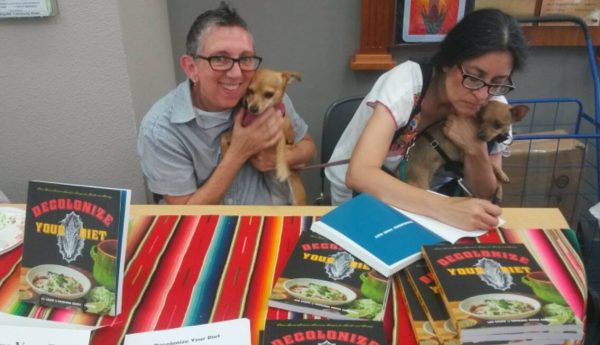
In 2015, they co-authored “Decolonize Your Diet,” a book that not only contained recipes, but reflections on modern Mexican and American food, history-based descriptions of Mesoamerican cuisine and culture, and the idea of food as medicine.
At the beginning of the book, Esquibel wrote about their relationship, “When Luz and I started to get to know each other in 1995, food was always part of the scene: I brought my vegetarian pozole to Luz’s potluck. The first ‘date dinner’ I cooked for Luz was New Mexico Green Chile Stew… Our song was the classic ‘Sabor a Mí.’”
Calvo reflected on their time writing the book together.
“[Writing] was fun and hard at the same time,” Calvo said. “Catriona did so much research and I did so much cooking. We both did so much thinking about how to frame the intervention we were trying to make, the reclamation of ancestral foods, and what kind of language we would use to best reach our audience. Our imagined audience was Chicanx/Latinx students in the [California State University system] and their families.”
In her book “With a Machete in Her Hand,” Esquibel analyzed depictions of Chicana lesbians in literature, following a decade of research.
“This book is the result of my partnership with Luz Calvo,” Esquibel wrote.
Calvo will remember Esquibel for “the life we built together, her amazing generosity and fierce love.”
“She held academic positions at New Mexico State University and The Ohio State University before landing her dream job at SFSU,” Calvo said.
She was hired in 2005 as an assistant professor, along with Falu Bakrania, into an informal program in the College of Ethnic Studies. That program would become the department of Race and Resistance Studies.
“She and I shared an office for the first 10 years,” said Bakrania, who is now the chair of the department. “And looking back through a lot of our emails, she was just a really over-the-top, really kind person. I still remember that the university couldn’t afford new bookcases for us, so we somehow managed to get bookcases ordered, but we spent a weekend with hammer and nails, putting them together in our office.”
Bakrania said the department was created by Esquibel and other Ethnic Studies lecturers and professors.
“We transformed this program that we were hired into, into a legitimate department,” Bakrania said. “It took years.”
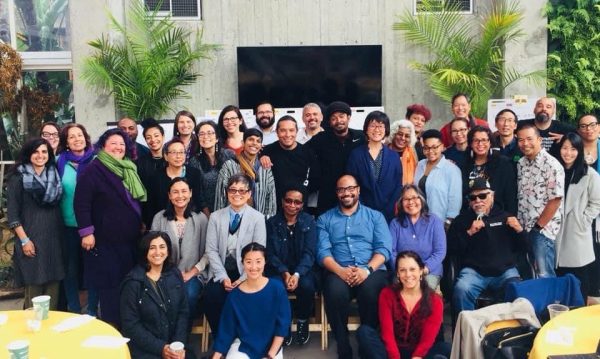
Bakrania remembers Esquibel as “pure gold.”
“She had the right mix of sarcasm and wit, with just joy,” Bakrania said. “She just was a really joyful person. I think she’s one of those people who knew how to find beauty in a lot of little things. I’m honestly traumatized. I don’t know what to say. I’m still in shock that she’s gone. I just can’t believe she’s gone.”
Grace Yoo is the dean of the College of Ethnic Studies.
“I’m heartbroken that she has passed. I am heartbroken,” said Yoo. “Catriona was instrumental in supporting the development of new minors…and new majors.”
According to Yoo, Esquibel helped develop two majors: Race and Resistance Studies and Race, Ethnicity, and Health. She also helped create minors in Arab and Muslim Ethnicities & Diasporas Studies, Critical Mixed Race Studies, Critical Pacific Islands and Oceania Studies, and Queer and Trans Ethnic Studies.
Bakrania also said Esquibel played a major role in the university and the college.
“As the director of GE [General Education], I think she really significantly helped shape the curriculum in a way that helps our underserved students,” Bakrania said. “And in the college, she’s done some really trailblazing things like help create the Queer and Trans Ethnic Studies Minor.”
Gautam Baksi is an administrative analyst specialist who has worked with Esquibel almost daily over the past three years. Baksi described her as a foundational pillar of the RRS department and the College of Ethnic Studies.
“[She was] a real champion, a real caring person, so kind,” Baksi said. “When she heard my partner liked to cook, she gave her ‘Decolonize Your Diet’ cookbook and it was just the perfect gift at the perfect time.”
Esquibel also created a class based on the book she and Calvo co-wrote.
“She really helped transform our curriculum and RRS by creating this class called ‘Decolonize Your Diet,’ which is now a super high-demand class that we almost always fill,” said Bakrania. “That helped transform our curriculum to start opening a space for us to start talking about food, health and climate.”
According to Calvo, Esquibel enjoyed crochet.
“She considered herself a ‘stitcher.’ Her [Instagram] handle was munequerx and she posted her creations there,” Calvo said.
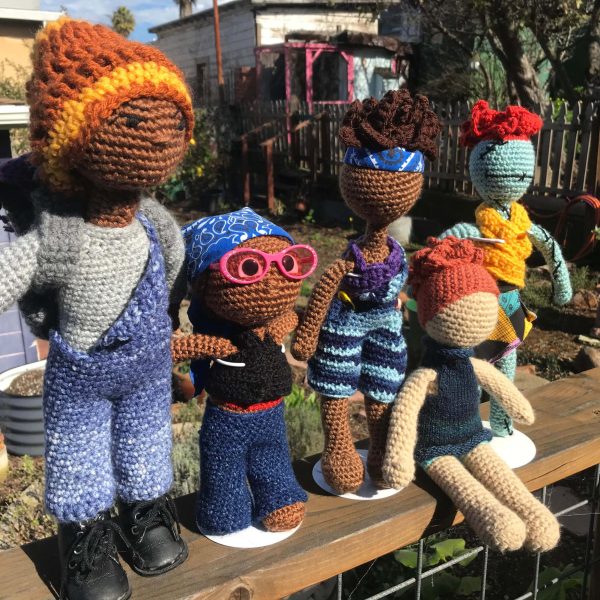
Baksi remembered her art as a form of care and generosity.
“She used to [crochet] these dolls. They were highly coveted,” Baksi said. “Everyone was really moved by her gestures of caring and reaching out for the students.”
Tiffany Caesar is an assistant professor of Africana Studies. She joined the university last year but remembers Esquibel fondly in their brief time working together.
“I remember Professor Catriona as a warm, encouraging and focused person,” Caesar said. “Whether she was walking outside, if she was knitting something, she would always stop to say hello. I think at times, we as professors forget to be human towards one another because we’re so busy focused on work. One of the things I remember about Catriona was her ability to pause and allow us to share what’s going on and for her to show sincerity about our situations beyond the academic gaze.”
Esquibel was dedicated to student success.
“She was very student-centric,” Bakrania said. “I would get an email from a student that would say ‘Oh, I don’t have this requirement or that requirement. What do I do?’ and if I didn’t know the answer, I would forward her the email… and she would come back with a full page in which she would’ve researched everything, the student’s record, and come up with a plan for how that student could succeed.”
Baksi said that Esquibel impacted many lives and that her death will be a challenge for the College of Ethnic Studies.
“[It was a] meteoric crater — giant,” said Baksi. “It leaves a huge vacuum to be filled… we won’t even feel or know or understand the size of the impact until we start trying to fill and replace the work she did.”





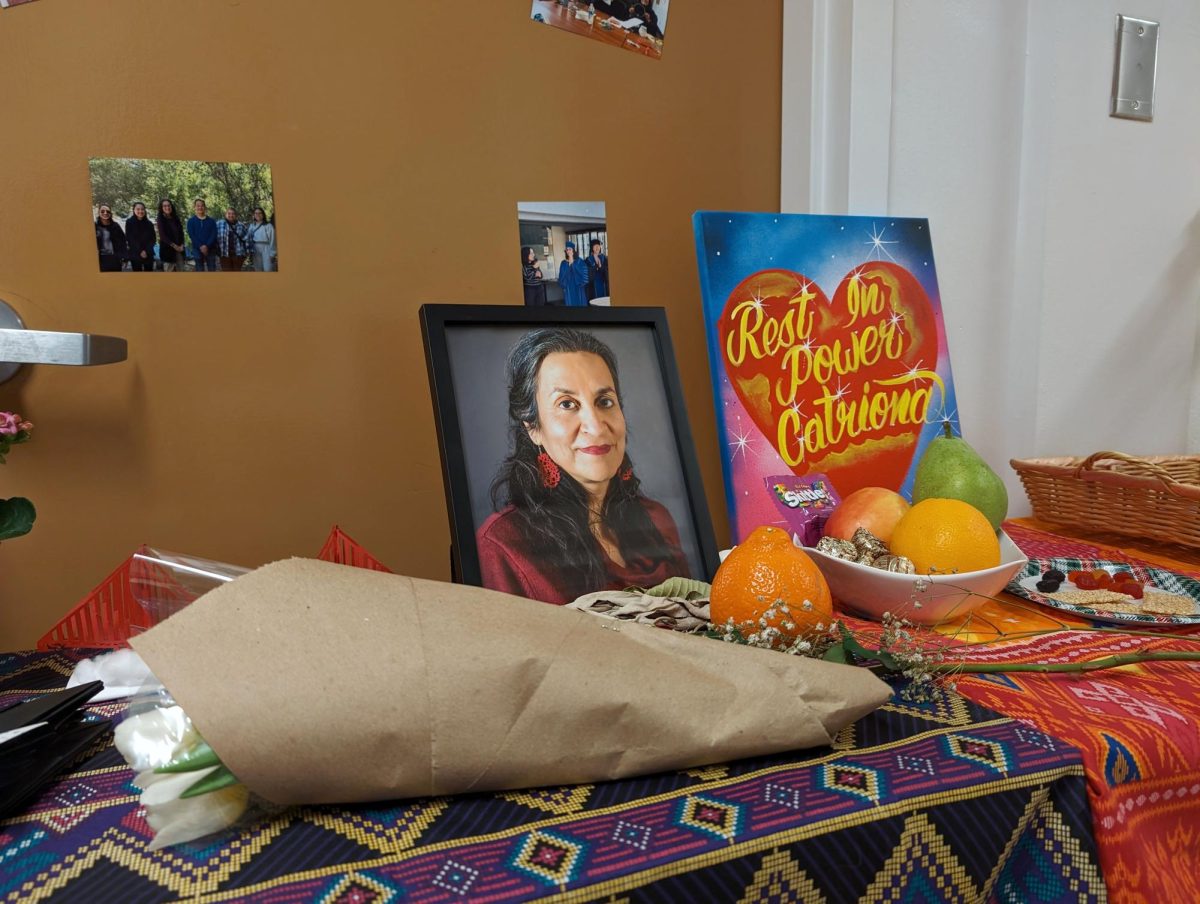
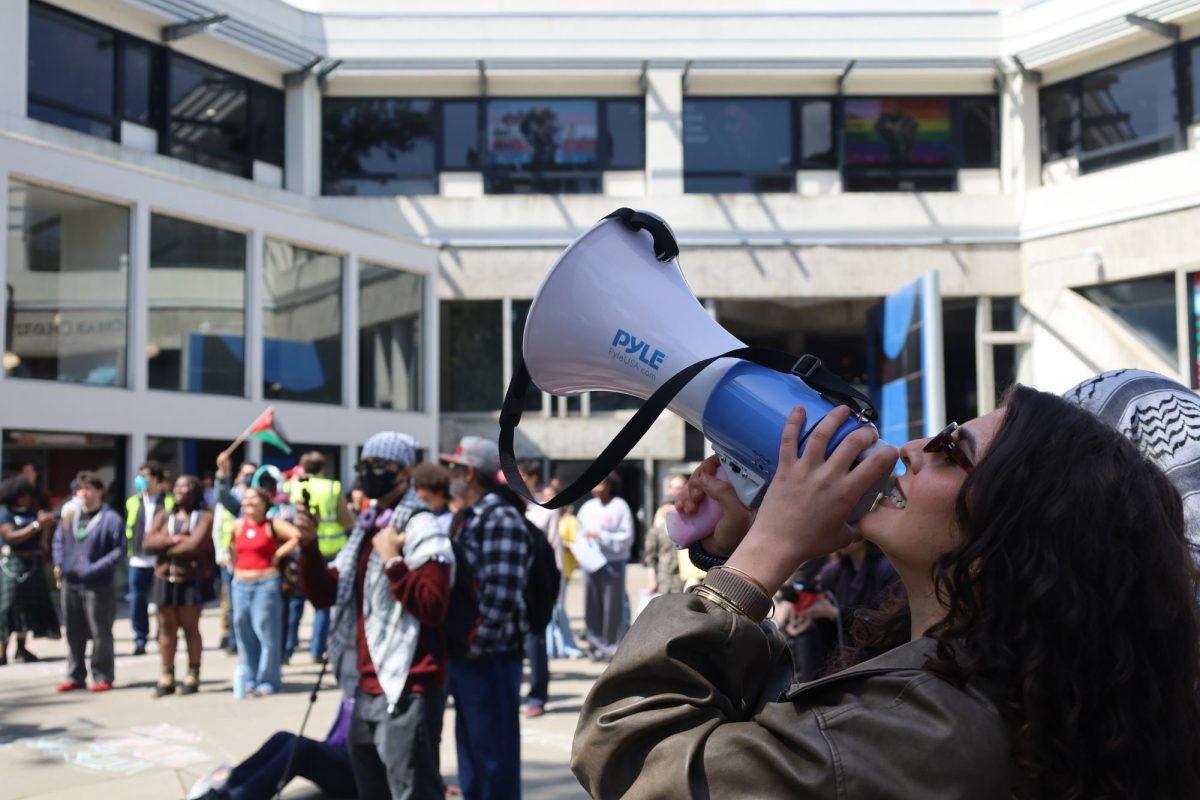
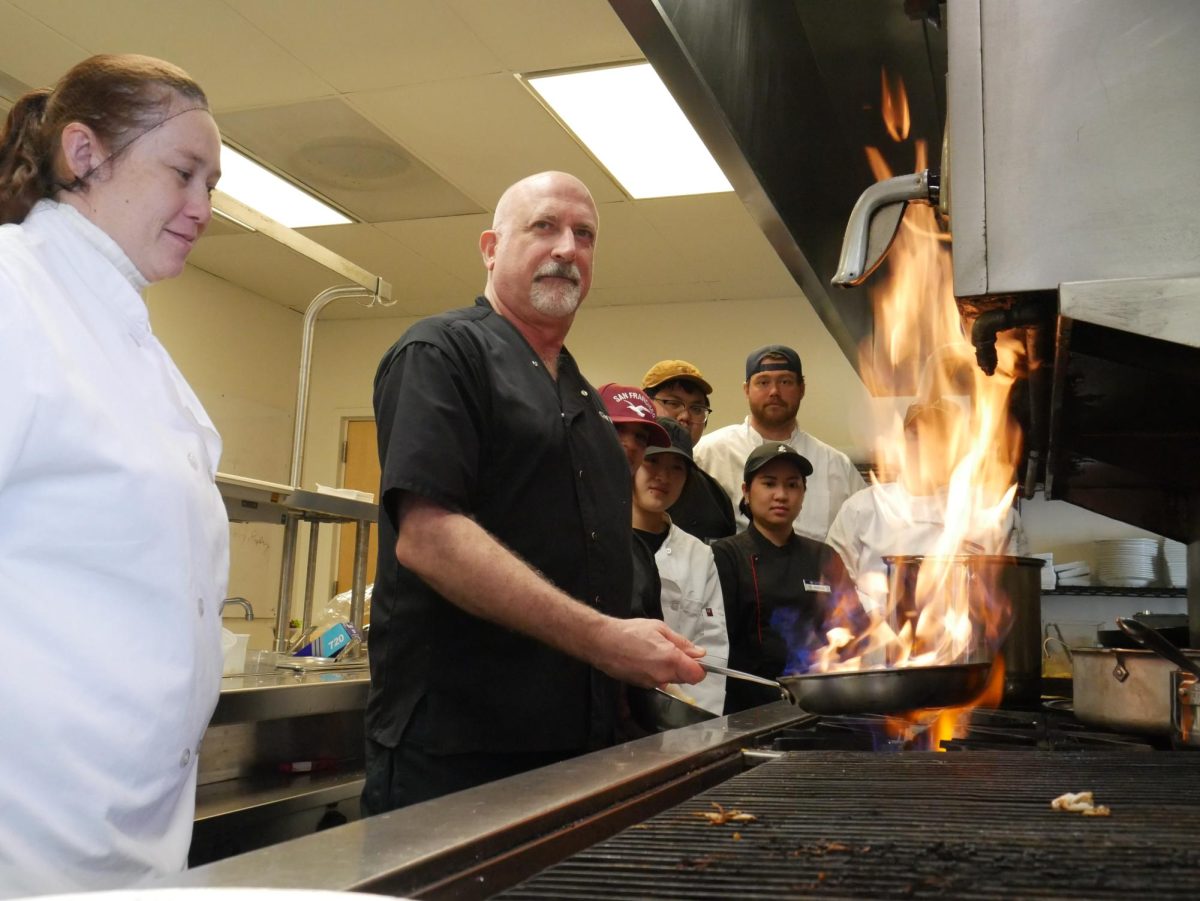
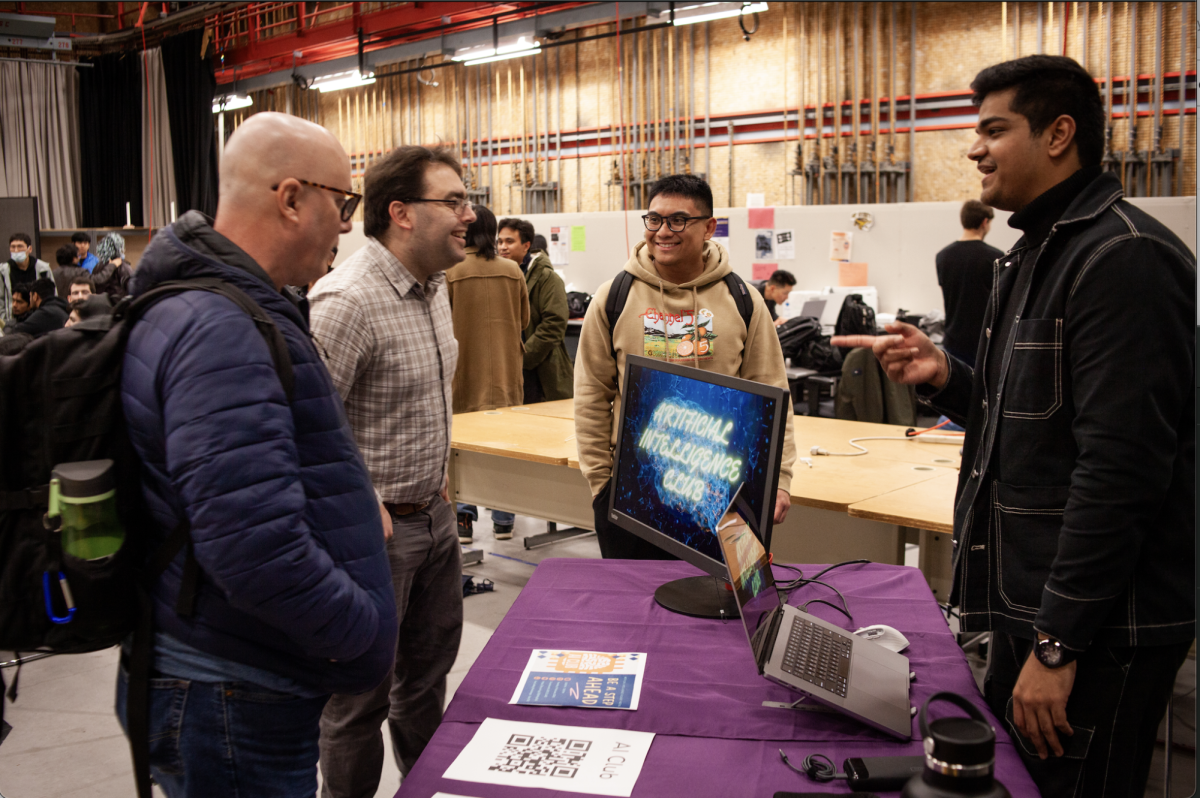
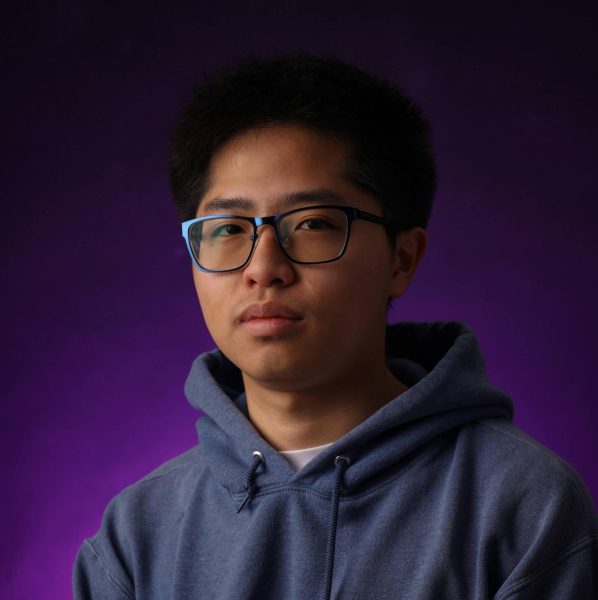
renee e stephens • Feb 27, 2024 at 8:37 pm
When I was in the EdD program, I often grabbed my signed copy of With a Machete. It sustained, nourished, fed me. It gave me hope of what is possible for Xican@Jotas in a book that I had not realized could ever be published by UT, too.
She’s an iconic professor/instructor/teacher/mentor. To keep it real, I was intimidated by her magical brilliant curandera/bruja, knitting extravaganza, Chihuahua fellow worshipper, chicken loving and nurturing their own honey bees, their mystic ways. It was all my own stuff. You see, I feel a special connection to her. While she was in Santa Cruz for grad skool at Hist Con Ph.D boot camp under exquisite guidance from the masters/CA founders of queer theory… I was in her family’s state at UNM for a MA in ‘Burque.
She exited quickly, gently in the embrace of her Poppa after her Craftism course was approved to maintain her legacy. The rest of world, look: she left us her books, her reading suggestions, beautiful brown dolls and a cookbook with her Poppa. She left us Luz to continue her legacy. There are no words really to quantify what she means to me, to us her proud queer Xicana followers of her insta, the way she lived her life. At least not yet. I am still numb. Ask me again in a year from now. Every single interaction on and once off campus was positive empowering, uplifting. I loved that often she’d be the only PhD in the room learning EAB/navigator or presenting at summer bridge-anything to help EOP students. She was always a willing guest speaker request. When I gave her an EOP pin, she displayed it proudly on her backpack like a badge. She rolled with a sense of service to those who feel the most isolation/under-represented/the queer. She is our leader who always gave us the feeling we belonged at the University. Her office was one of the few sacred spots I could drop by (without an appointment) She’d let me in so I could sit in the room with all these books. Some validating ones we both owned, others teaching me hidden queer herstory. How did I miss that one?
I gifted her cookbook to students when I last taught FYE in fall 2021. I didn’t know how to help heal the trauma we all experienced yet at least that cookbook could maybe help? We all had that strange what is this return to campus going to be like feeling yet she led the pack, slowing acclimating. I cherished then hearing how she had returned to campus. Once I heard that, I felt better about the high-dive back in person. This unknown future.
Fun fact: An example of someone I truly admired because well, she just got me. The last time I saw her, it was a catch up even if was just walking her to the parking garage and then a ride in the new-ish car she and Luz had recently purchased before she headed home across the bridge. I shared that I too, made the investment, my first new-ish car since 2001. The night before I was told it is ridiculous and silly that I give my car a name. What one of the first things she asks? What’d you name her?
I guess what keeps me going today in this numb and shock is at least envisioning her having homemade tequila with Sor Juana and maybe a tobacco exchange with Frida? Oh the living, the stories we tell ourselves. Luz, thank you for sharing her with us. con carino, respeto y jota amor…
Yvonne Keller • Feb 17, 2024 at 10:03 pm
♥️♥️♥️♥️ I remember Catriona from Huber PHD program at UCSC. Such a loss.